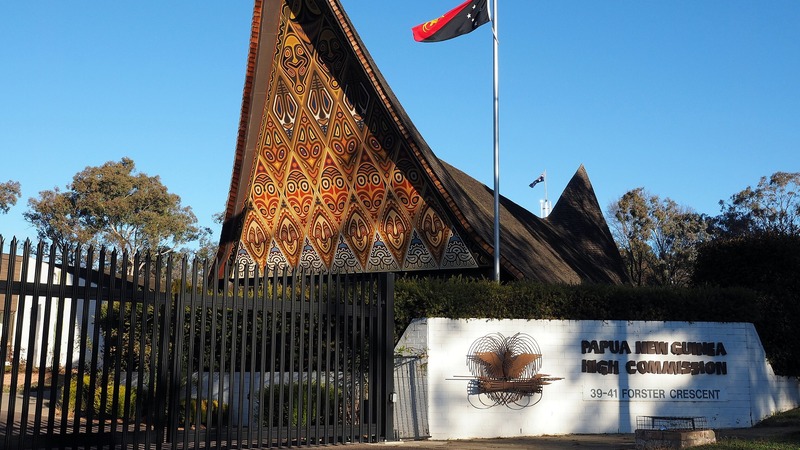Will the decision on Bougainville’s independence rupture Australia’s Pacific family?
February 27 2023

By Corey Lee Bell and Elena Collinson
Note: This article appeared in 9DashLine on February 27 2023.
Papua New Guinea’s (PNG) parliament is supposed to decide this year whether it will ratify the 2019 referendum on Bougainville’s independence. The referendum, while officially non-binding, showed near-unanimous support among Bougainvilleans for the island to become the world’s newest state. Outside PNG, this issue has recently faded from view, but the potential repercussions of this decision should not be ignored.
Bougainville, which was the site of a ten-year civil war 25 years ago, seems unlikely to accept anything short of independence. Many observers, and some PNG politicians, support its right to self-determination. However, there are unresolved questions about its capacity to transition to a stable and fully functional sovereign state. PNG and other ethno-linguistically diverse nations are also wary of separatism posing a greater risk of contagion to the region.
Thus, either outcome — independence or continuation of the status quo — could foster hostility and instability. This also could drive Bougainville and/or PNG to welcome security partnerships with China, which has been proactively trying to gain a foothold in the region. With regional competition between major powers intensifying, this cocktail of ethnopolitical tensions and geostrategic rivalries could ignite shockwaves across all corners of the Pacific.
For Australia, the path ahead is especially difficult: both PNG and Bougainville are situated within Australia’s inner security arc and are strategically vital. Having been entangled in the civil war, Australian attempts to broker a solution run the risk of reviving accusations of pursuing a ‘neocolonialist’ agenda or prioritising Canberra’s own security interests. This could undermine its pan-regional leadership credentials, and the Labor government’s hitherto successful ‘Plan for a Stronger Pacific Family‘.
Will PNG’s parliament ratify the referendum?
The first key problem for Canberra is the growing doubts about the outcome of the PNG parliamentary decision. There are several reasons why PNG’s parliament may ratify the resounding referendum result: 97.7 percent of voters chose independence. Last year, PNG Prime Minister James Marape signed a document ‘acknowledging and accepting’ that the referendum results were ‘independently assessed as fair, free, and credible’.
PNG’s parliament may also feel that independence is not a big departure from the current situation in Bougainville. The island has enjoyed a high degree of autonomy since becoming the Bougainville Autonomous Region in 2000. Economic incentives for retaining the territory have also weakened. Bougainville’s Panguna mine — once accounting for roughly 45 percent of PNG’s national export revenue — is long closed, and other PNG provinces have experienced mining booms.
Yet, there are also reasons why independence might not be granted. Bougainville has minimal representation in PNG’s parliament (only four of 111 parliamentarians) which will determine whether the referendum result will be honoured. Also, PNG’s Governor-General Bob Dadae has voiced concerns that Bougainville’s independence will prompt separatist movements in other parts of PNG. Recent statements from Marape appear to propose that all Papua New Guineans — not just Bougainvilleans — should have the opportunity to have a say on independence. He has also voiced concerns about Bougainville’s capacity to manage independence and credible assessments that an independent Bougainville government faces steep challenges to address, for instance, its currently sizable fiscal shortfalls.
Challenges to Australia’s ‘Pacific Family’ vision
These uncertainties have the potential for several difficult scenarios. What happens if PNG’s parliament decides not to ratify Bougainville’s referendum result, proposes a slower transition timetable, or advances a model of autonomy that falls short of full independence?
According to some reports, there has been little appetite for a repeat of the civil war in Buka or Port Moresby. However, there is a general belief that, if PNG’s offer were to fall short of Bougainvilleans’ expectations, the island will simply declare independence unilaterally. If Australia pushes the PNG government to ratify the result, acknowledges a unilateral declaration, and/or prioritises assisting the new government to head off Chinese involvement, it could strain Canberra’s relationship with Port Moresby.
For Australia, the immediate problem on this front is that PNG is arguably of unparalleled strategic importance. PNG is located in the middle of Australia’s inner arc and is Australia’s strongest security partner in the region. Their mutual relationship is strengthening due to the Comprehensive Strategic and Economic Partnership signed in 2020, and other agreements on traditional and non-traditional security that are expected to build a platform for the signing of a broad-ranging Bilateral Security Treaty this June.
PNG is also open to collaborating with other partners — including China. In December, PNG’s chief of defence announced that China was building a military hospital in Taurama Barracks. In a recent interview, Foreign Minister Justin Tkatchenko emphasised that the PRC is an ‘important strategic partner’ for PNG. Having invested an enormous amount in the relationship, such as the AUD 175 million Joint Initiative at Lombrum Naval Base, Canberra will be anxious to avoid appearing unsupportive of PNG’s aspirations for territorial integrity.
Bougainville and China
However, backing a ‘no’ decision carries similar risks. Any sense that Australia’s professed role as a regional mediator is compromised by its own strategic interests could reinvigorate historical sensitivities about ‘neo-colonialist' interventions in the region’s political architecture — a point often accentuated by Chinese state media.
This appears to have occurred already: in October 2022, Australia’s Deputy Prime Minister and Defence Minister Richard Marles said that Australia will ‘support’ Papua New Guinea regardless of its decision. In response, Bougainville’s President Ishmael Toroama charged ‘neo-colonialist’ Australia with trying to ‘destabilise yet again Bougainville’s right to self-determination’ and ‘usurp the sovereignty of Pacific island nations’. Against the backdrop of Australia’s historical entanglement in the civil war, a flare-up of these concerns could deal broader damage to its credibility as a regional leader and ‘partner of choice’.
Yet, there are other reasons why Australia can neither afford to let a de jure or de facto independent Bougainville fail. Bougainville is essentially an extension of the Solomon Islands archipelago — a geostrategically vital region in proximity of the sea lines connecting Australia and the US. It is also the home of one of the best deep-water ports in the region. It is significant, on this point, that PNG’s parliament’s decision will come a year after Beijing signed a security agreement with Honiara. This, along with reports of Chinese interest in the deep-water port at Kolombangara Island, alarmed Canberra, which fears that China may aim to establish a permanent naval presence in the region.
Beijing, moreover, has in the past also enthusiastically courted Bougainville — albeit with limited success. In 2011, then-President John Momis signed seven Memoranda of Understanding with Chinese entities and approved the formation of the Bougainville China Cooperation Committee. Alongside the deal, a Chinese national was appointed as Bougainville’s trade commissioner to China. Failed deals, and claims of tax irregularities and impropriety, resulted in the surviving Bougainville Import Export Corporation reverting to 100 percent Bougainville government ownership in early 2019. Later that year, China was not invited to help address a funding gap for the referendum, which was instead filled by Australia, the US, and other partners.
While lukewarm on Australia, Toroama has so far been wary of China expanding its influence on the island. However, Toroama is but one politician of many. A local source interviewed by the authors has claimed that some previous presidential candidates have been financially backed by Chinese interests. Moreover, the combination of severe fiscal shortfalls, a perceived need for security independence from Australian-backed PNG, Chinese appetite for natural resources, and Beijing’s manifest desire to expand its security footprint, could motivate Beijing to put aside short-term financial gains and lure Buka back to the table.
Between Scylla and Charybdis
The referendum provides a telling precedent: before the vote, a Chinese delegation was claimed to have offered USD 1 billion, along with investments in mining, tourism, transport, and agriculture, to help fund Bougainville’s transition to independence. This was corroborated by a former Bougainville Revolutionary Army leader presenting Australian media with a satellite map showing what appeared to be a comprehensive Chinese development proposal. He stated that China had proffered the ‘first holistic offer’, asking, ‘Where are Australia, the US, and Japan?’
The approaching milestone on Bougainville’s journey to independence could once again see China escalating its efforts. If PNG’s parliamentary vote results in a more immediate declaration of independence — as opposed to a gradual power transition finalised later in the decade — Beijing’s hand will be strengthened and Canberra’s challenge made immediately more urgent.
Taken together, Australia could well face a series of complicated decisions leading up to PNG’s decision on Bougainville’s independence. With the decision anticipated this year, and with the high likelihood of Beijing presenting another round of offers to Bougainville, the clock is ticking. While limited in its choices, the stakes are too high for Australia to forfeit initiative and allow its previously prudent passivity to morph into strategic paralysis.
Dr Corey Lee Bell is a Project and Research Officer at the Australia-China Relations Institute, University of Technology Sydney (UTS:ACRI).
Elena Collinson is head of analysis at the Australia-China Relations Institute, University of Technology Sydney (UTS:ACRI).


